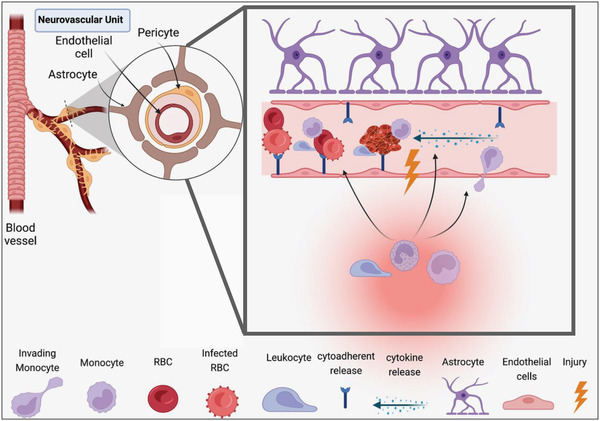Figure 3.

Pathophysiology of cerebral malaria. Cerebral malaria pathophysiology occurs after P. falciparum infection, endothelial cell dysfunction, blood‐brain barrier (BBB) disruption, and neuroinflammation. The BBB consists of three major cellular types which are the brain vascular specialized endothelial cells, astrocytes, and pericytes. The BBB endothelium has a limited transcellular transport and restricted transcellular transport in order ensure optimum environment for neuronal function and protect the CNS against the invasion of pathogens, toxins, proinflammatory cytokines, and chemokines. In CM, both parasite and the host immune response promote the release of proinflammatory molecules that can damage brain endothelial cells and impair the integrity of tight junction, leading to BBB leakiness and dysfunction. This would allow peripheral immune cells and circulating cytokines to enter the CNS causing neuroinflammation and resulting in cognitive deficits.
